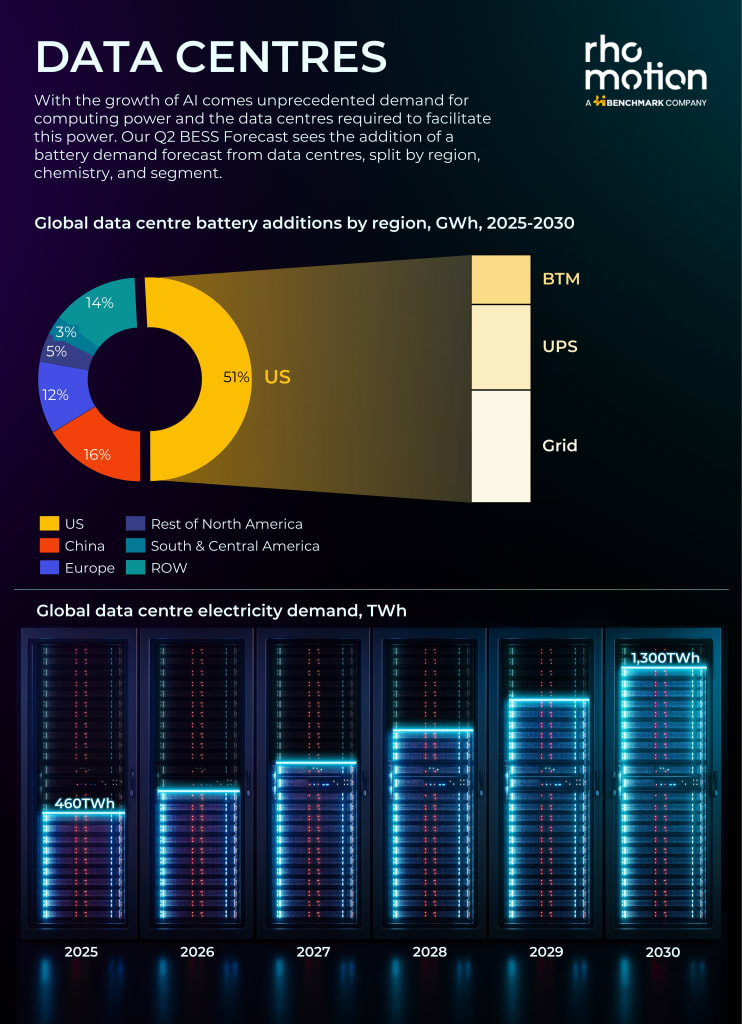The past few years have seen a rapid growth in the rollout and usage of artificial intelligence (AI), particularly in the areas of large language models and generative AI. As this power-hungry industry grows, data centre specific electricity demand will increase, consequently Battery energy storage systems (BESS) will play a role in providing and guaranteeing this power demand.

How will increasing power demand affect battery deployments?
According to Rho Motion’s Q2 2025 Battery Energy Stationary Storage Forecast global data centre electricity demand is expected to increase over 180% through to 2030, with a large proportion of this will come from the US. While many data centres will secure power through solar and wind deployments, primarily through PPAs. The use of renewables to help power data centres will lend itself to BESS deployments. Consequently, we expect there to be increased BESS demand specifically for data centres.
Where will the most demand be?
The US is expected to account for over half of the additional BESS demand, largely as a result of its dominance in the data centre space. China will be the next biggest region, while countries such as the UK and Germany will also see growth as they build out data centre capacity.
Most of these additional deployments will be grid scale BESS, but uninterrupted power supply (UPS) and behind the meter (BTM) BESS will also play an important role in providing back up power.
More Information
To find out more about this topic see Rho Motion’s Q2 2025 Battery Energy Stationary Storage Forecast.

 Back to News
Back to News